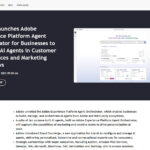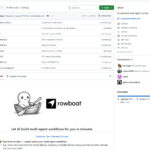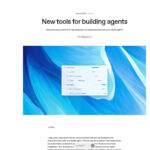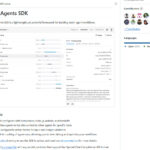AI agents can work together and carry out actions independently. This enables them to achieve better results than normal generative AI solutions. We show the most important tools and frameworks for creating AI agents with and without coding.
Last updated: 05/2025
Part 1: Automation & AI agent tools without coding
If you want to use AI agents without programming, there are already a number of tools to choose from, from open source to commercial. Agents can be clicked together with simple web interfaces. You define the logic and behavior by telling the agents what their tasks are and how exactly they perform them using system prompts or low-code-editors with programming-like drag & drop building-blocks. The agents are also given capabilities (usually called “actions”), which can be used to search the Internet or access tools, for example. In a playground, you can then give the agent system a task and see how the agents work out the solution among themselves. The most important solutions are:
- AutoGen Studio
- Relevance AI
- Microsoft Copilot
- n8n
- Agentforce
- Other AI agent tools
AutoGen Studio
The open source tool AutoGen Studio is provided free of charge by Microsoft. It is really easy to create AI agents without code in a web interface. The sophisticated AutoGen agent framework is used in the background. You can try out initial showcases with a click, e.g. an agent team that researches current share prices on the web and uses them to create a chart. Agents can even execute code and thus evaluate data, create charts, perform complex calculations and much more. The most important LLMs can be connected, e.g. GPT (via OpenAI API or your own Azure instance), Claude and Google Gemini. You can also provide the agents with your own skills, which you code using Python. A Python environment and API keys for the LLMs you want to use are required for installation. This means that the solution can only be used with some tech skills for the installation, but it is mature and free of charge.
- Website: https://autogen-studio.com/
- Costs: free of charge (open source)
- Distribution: very high ★★★
- Special features: Easy to use UI, installation with Python


Relevance AI
Relevance AI has been developing AI agent systems since 2018. The web-based platform offers a no-code environment with a visual interface that even non-programmers can use to create complex AI agents within minutes. Hierarchies of agents can be put together. An integrated vector store enables fast response times. The platform focuses on data security and data protection through SOC 2 certification and GDPR compliance.
- Website: https://relevanceai.com/agents
- Costs: Free version available (100 credits), from €19 / month (basic plan)
- Special features: Sophisticated intuitive UI, Useful standard integrations with Outlook, Salesforce, Hubspot, Linked In and WhatsApp
- Distribution: high ★★
- Learn more:
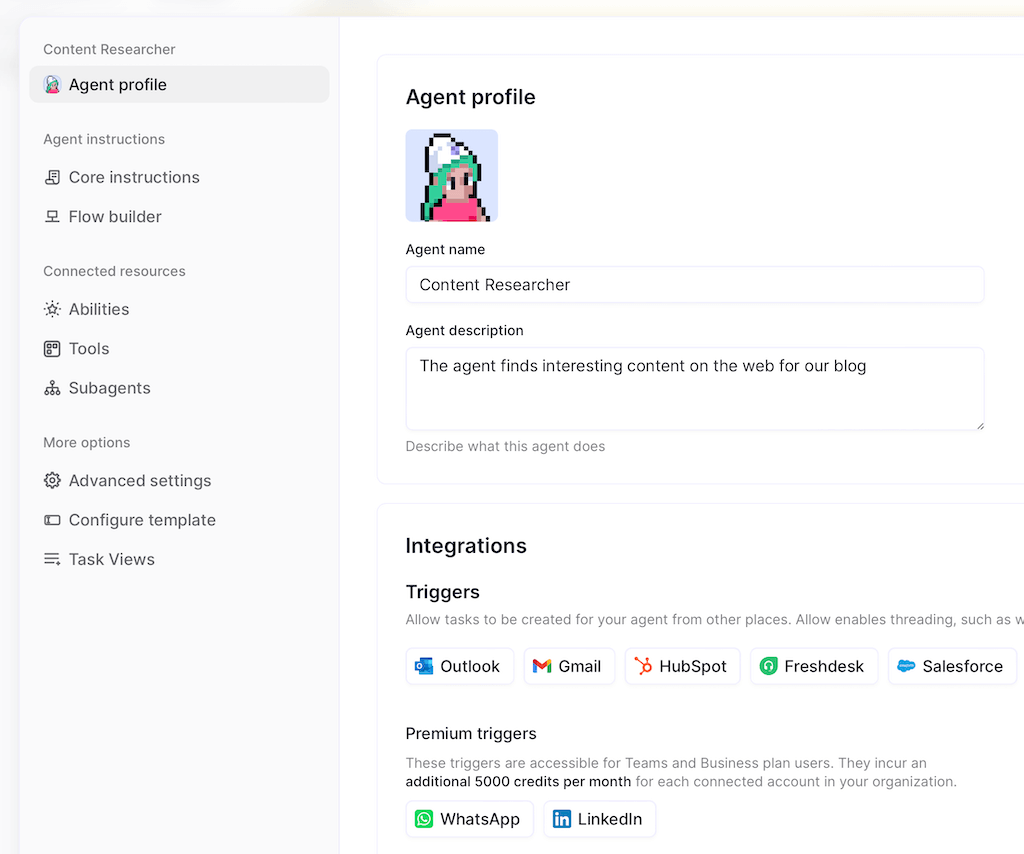
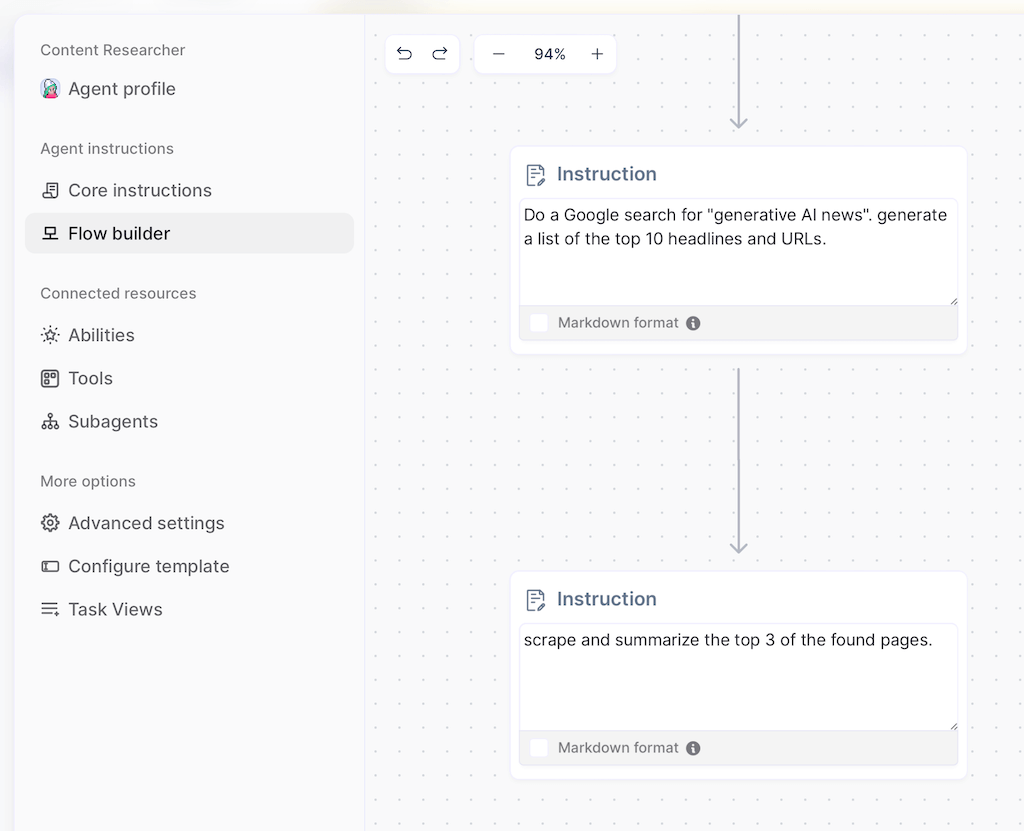
Microsoft Copilot
Microsoft’s vision is to support companies with AI agents in all processes and thus make AI a profitable part of the company for automation. Microsoft Copilot is the most important AI solution for many companies. This is because it is integrated into Word, PowerPoint, Outlook, Teams, Excel, Sharepoint and the Azure cloud solution. Copilot offers high security standards thanks to its integration into Microsoft’s world. Admins can release Copilot for each user and control rights granularly. Copilot agents can be easily created and linked to company documents. This means that important documents can be found quickly via Teams chat and company knowledge can be used. The other professional solutions Copilot Studio and Power Automate even make it possible to create complex agents that work with all company applications (e.g. Dynamics CRM, SAP, Salesforce) and other Copilots.
- Website: https://www.microsoft.com/microsoft-365/copilot
- Costs: approx. 30€/month per user (Microsoft 365 Copilot) Copilot Studio and Power Automate
- Special features: Integrated into all important Microsoft tools and technical company ecosystem (Sharepoint, Azure), highest security standards, Copilots can interact with all tools via over 1,400 connectors.
- Distribution: very high ★★★
- Learn more: Keynote from Microsoft CEO Satya Nadella for Ignite 2024 on Microsofts AI Vision

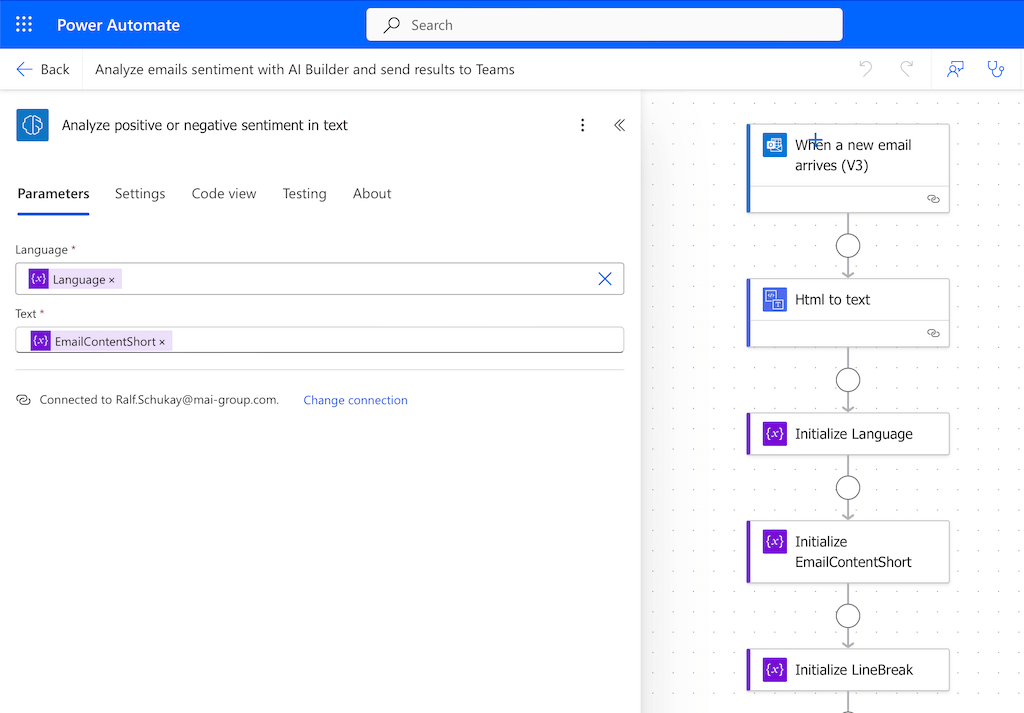
n8n
Insider Tip: The highly popular workflow automation tool n8n, with its many connectors and privacy-friendly, free on-premise option, is a must-have on any agent tool list. With n8n, you can easily create your own tools, such as marketing scrapers, SEO tools, content generators, and much more. You can easily bring generative AI into your process by using AIs like OpenAIs GPT, Google Gemini, Claude or even locally hosted LLMs via Ollama, e.g. Mistral, Llama and many others. The agent nodes can independently use tools, such as performing web searches or calling any APIs.
- Cost: Commercial, 24 € / month (Starter, monthly payment)
- Type: Low-code tool, drag & drop elements
- Key Features: Easy to use, suitable for beginners, large number of available connectors, many free or cheap templates available in the template marketplace
- Popularity: Very high ★★★
- Free Trial? Yes, available
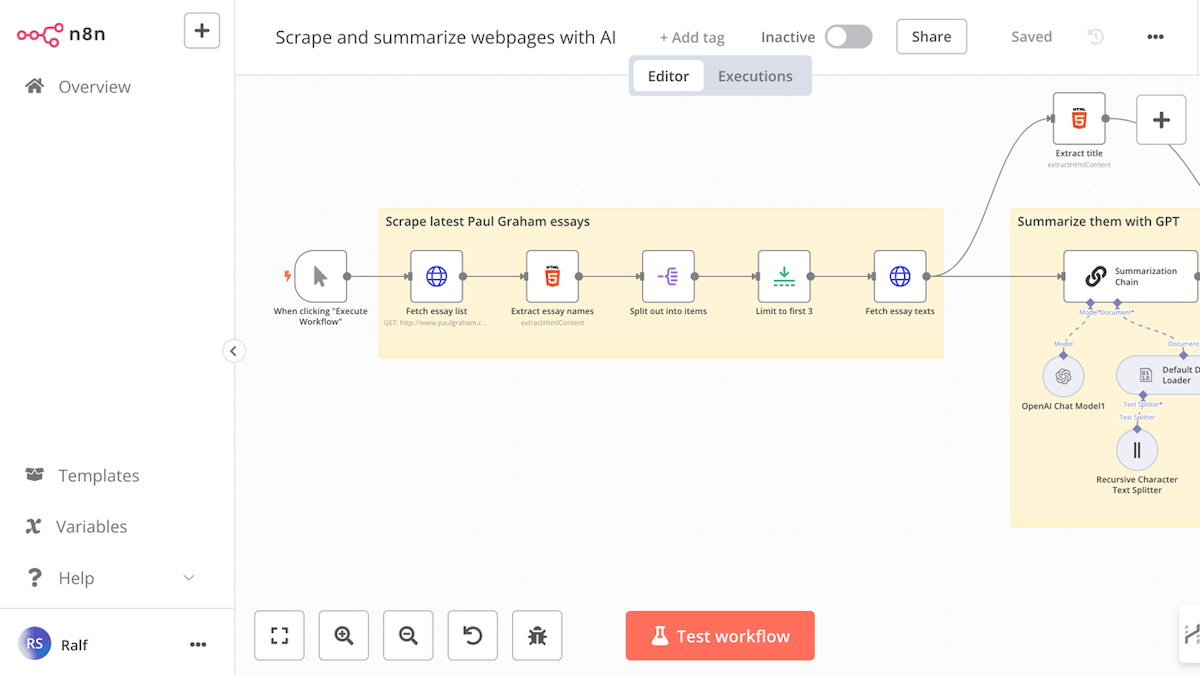
Agentforce 2.0
CRM manufacturer Salesforce offers its own agent system, Agentforce, which enables helpful agents to support marketing, sales and customer service and collaboration. The marketplace contains predefined agents that can be used directly. Agentforce AI agents can work with tools from the Salesforce universe, e.g. Salesforce CRM, Tableau, Slack and others.
- Website: https://www.salesforce.com/agentforce/
- Costs: commercial
- Special features: Agents can be integrated into Salesforce CRM, Slack, Tableau
- Distribution: new ★
- Learn more: Salesforce website on Agentforce (videos)
Other AI Agent Tools
- AgentGPT – Create agents via prompt, 20 example agents, simple UI
- SuperAGI – Agent tool specializing in marketing and sales
- make.com – Popular automation tool with numerous connectors and AI agent capabilities
- Manus – An impressive agentic tool from a chinese AI startup
- Zapier – Automation tool with numerous connectors and high usability, often used in marketing.
Part 2: AI agent frameworks for developers
For developers and AI specialists, programming frameworks are the best way to integrate AI agents into their own systems or create new tools. There are several mature AI agent frameworks to choose from. The most important solutions include the following frameworks:
- Mistral Agents API
- OpenAI Responses API
- Anthropic Computer Use API (Claude)
- AutoGen
- LangChain
- CrewAI
- Semantic Kernel
- Other AI agent frameworks
Mistral Agents API
In May 2025, Mistral AI introduced the Agents API, an API that enables developers to build and orchestrate autonomous AI agents based on Mistral language models.
- Website: https://mistral.ai/news/agents-api
- Cost: free of charge
- Distribution: new, potential: very high
- Special features:
- Agent framework: The Mistral Agents API extends classic language models with the ability to perform actions autonomously, maintain context and coordinate multiple specialized agents. Agents can plan tasks, use tools and reach their goal step by step in a loop
- Code execution: Python sandbox environment for mathematical calculations, data visualization and scientific analysis.
- Image generation: Integration of FLUX1.1 for image generation.
- Web search: Standard and premium versions, the latter with access to news agencies such as AFP and AP.
- Document Library & RAG: Access to user-specific documents and retrieval augmented generation.
- Model Context Protocol (MCP): Connection of numerous systems and APIs via the popular MCP protocol
- Agent orchestration: Several agents can work together on tasks and divide the work dynamically.
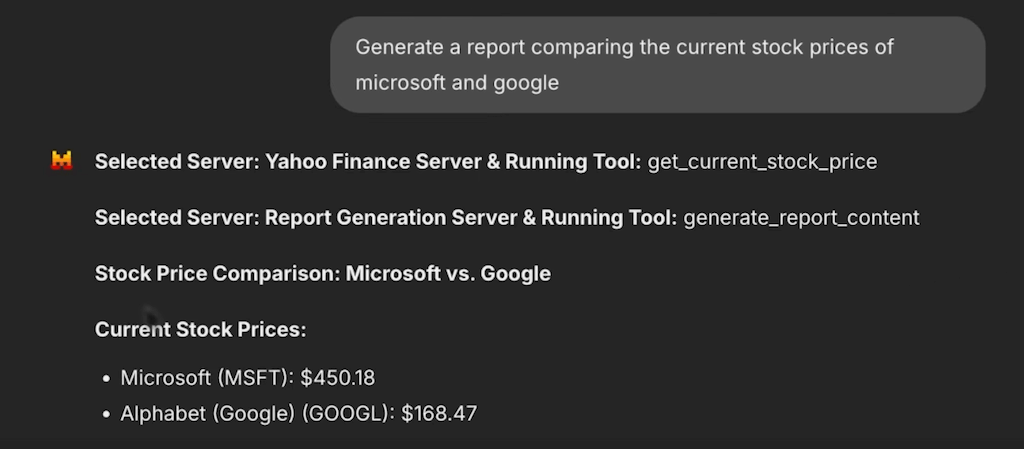
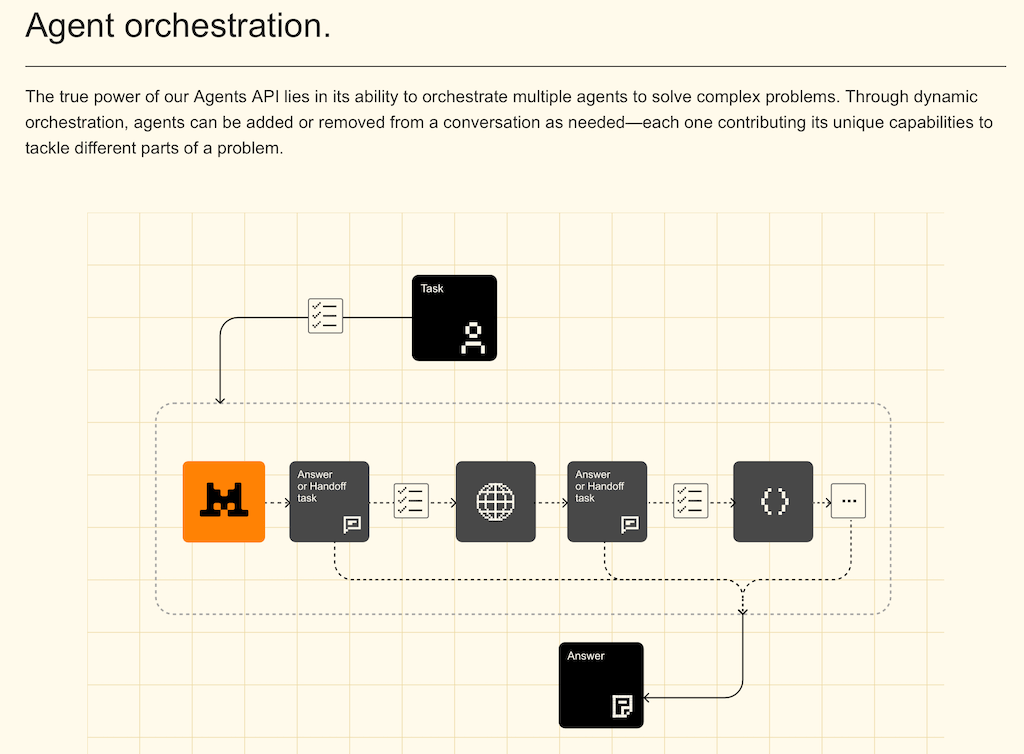
OpenAI Responses API
The OpenAI Responses API released in March 2025 replaces the existing APIs “Chat Completions API” and “Assistants API”. It enables developers to create agents that can perform complex tasks autonomously by using integrated tools such as web search, file search and even computer control. This API simplifies the development of agentic applications as it supports both the orchestration of workflows and interaction with various tools. OpenAI plans to phase out the Assistants API by mid-2026 in favor of the improved Responses API.
- Website: https://openai.com/index/new-tools-for-building-agents/
- Costs: free of charge (depending on usage)
- Distribution: new, potential: very high ★★★
- Special features: Integrated tools for web search, file search and computer control. Simplified development of agents.
Anthropic Computer Use API (Claude)
The LLM Claude from Anthropic can use the “Computer Use” function. This allows the model to perform computer tasks similar to a human, including controlling the mouse pointer, clicking buttons and entering text. This function is currently in the public beta phase and is accessible via the API. Claude can thus automate complex, multi-step tasks and be integrated into various applications.
- Website: https://docs.anthropic.com/en/docs/agents-and-tools/computer-use
- Costs: free of charge (depending on usage)
- Distribution: new, potential: very high ★★★
- Special features: Ability to perform computer tasks autonomously; experimental function with potential to automate complex processes
More infos: See our article on Anthropic Computer Use
AutoGen & Magentic-One
AutoGen is developed by Microsoft as open source software and makes it possible to create agent systems using code. There are libraries for Python, C#/.NET-Framework, Java and Javascript. Since 11/2024, there has also been the further development Magentic-One, which is specially designed for multi-agent systems and provides more structure for the requirements of complex multi-agent systems thanks to an improved, modular architecture.
- Website: https://microsoft.github.io/autogen/
- Cost: free of charge (open source)
- Distribution: very high ★★★
- Special features: High distribution, tools such as AgentOps, LangSmith, LangGraph available for debugging/observability
LangChain & LangGraph
LangChain is a popular open source framework with extensive components for LLM-supported applications. It supports all LLM providers and has a large, active community. LangGraph Platform (commercial) also provides a scalable platform for live requirements (own hosting in EU/US cloud possible). Agent workflows can be visualized in LangGraph Studio.
- Website: https://www.langchain.com/
- Cost: free of charge (open source)
- Distribution: very high ★★★
- Special features: High distribution, many components, professional tools available (LangSmith, LangGraph), Pydantic-compliant
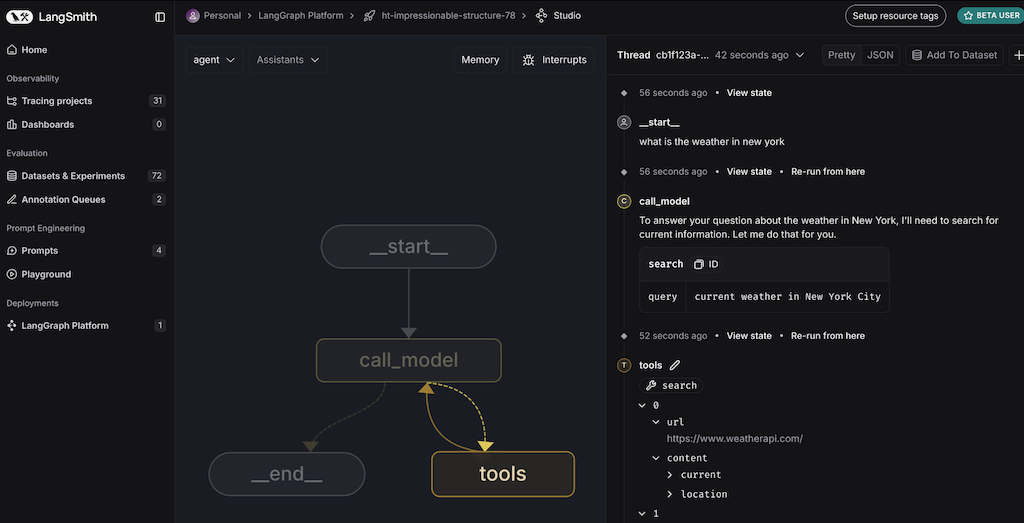
CrewAI
CrewAI is a mature and widely used framework for the development and integration of AI agents in your own applications. The framework can be used free of charge, the enterprise version offers sophisticated tools and extensions, e.g. connectors to 700 applications, a no-code UI studio and integrated training and testing tools. There are many free online videos for learning.
- Website: https://www.crewai.com/
- Costs: Free version: free of charge (open source), enterprise version: price on request
- Distribution: very high ★★★
- Special features: High distribution, enterprise tools available
- Learn more:
- Free online course (deeplearning.ai): Multi AI Agent Systems with crewAI (approx. 3h)
Semantic Kernel
Semantic Kernel is an open-source SDK from Microsoft that enables the integration of LLMs like OpenAI, Azure OpenAI, and Hugging Face with programming languages such as C#, Python, and Java. With the “Semantic Kernel Agent Framework“, you can enhance agent capabilities. You can create plugins that allow agents to perform actions like sending emails, web research, fetching CRM data, etc. Using planners, an LLM can autonomously create and execute plans to achieve specific goals (e.g., conduct web research first, then outline an article, then write the paragraphs). Semantic Kernel is a mature framework ready for enterprise use.
- Website: https://github.com/microsoft/semantic-kernel (GitHub repository)
- Cost: free
- Adoption: primarily in the Microsoft ecosystem ★
- Features: Integrated with the Microsoft ecosystem, powerful extensibility, compatible with Microsoft Copilot (Custom Engine Agents)
- Learn more:
- Architecting AI Apps with Semantic Kernel (Microsoft Devs Blog)
- Introduction to Semantic Kernel (Microsoft Learn)
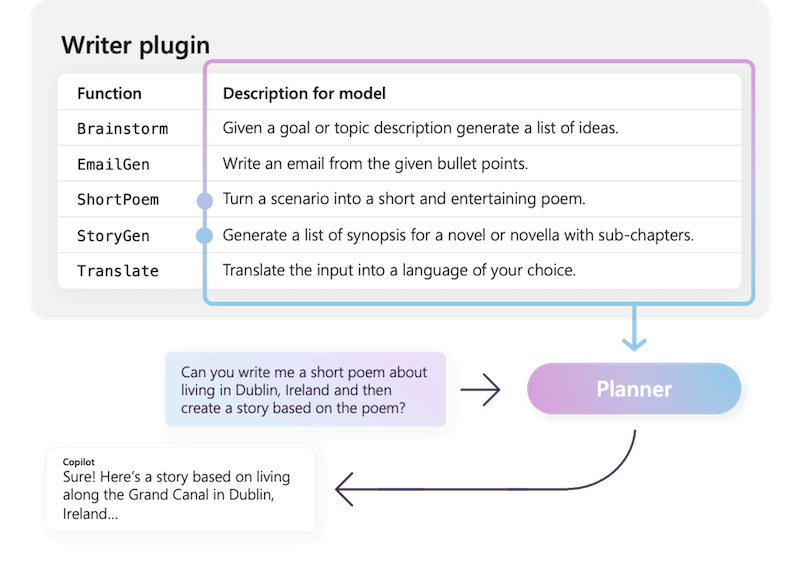
Other AI agent frameworks
- AutoGPT – One of the first popular agentic solutions that allows you to create, deploy, and manage continuous AI agents that automate complex workflows
- OpenAI Swarm – OpenAI’s open source framework for agents, currently still experimental
- llama-agents – An open source agent framework based on the popular LlamaIndex framework
- smolagents – A lightweight open-source agents framework by HuggingFace
- Multi-Agent Orchestrator – An open-source agents framework by AWS for TypeScript and Python
What are AI agents?
Agent systems are seen as the next big AI wave and promise major advances in AI. The agent concept means that AI agents are specialized in certain tasks. They can also plan, execute and coordinate tasks independently. They differ from traditional AI systems in that they not only execute individual instructions, but also carry out complex processes independently.
The strength of such agents lies in their ability to combine different tools and services – from web research and data analysis to the generation of graphics or reports. The ability to coordinate several agents in a team enables them to handle even more complex tasks that go beyond the capabilities of a single agent. The decisive factor here is that AI agents not only process information, but also make context-related decisions and dynamically adapt their working methods to given goals.
Examples of AI agents
- Market research agent: An AI agent can, for example, carry out market research by performing Google/Bing searches, collecting and analyzing the results, evaluating interim results and adapting its strategy accordingly. It can coordinate with other agents who take over parts of the task, such as checking the research or preparing it as Word or website text.
- Research agent: Systematically searches scientific databases, extracts relevant research results and creates compact summaries on specific topics. Ideal for scientists and research teams.
- Customer service agent: Analyzes customer queries holistically, accesses company databases and generates context-related solutions. It can diagnose faults, create repair instructions and complete service processes.
- Financial agent: Monitors stock markets in real time, evaluates company balance sheets and generates data-based investment recommendations. It combines information from various sources to develop precise investment strategies.
Frequently asked questions about AI agents
What distinguishes an AI agent from a normal AI chatbot?
An AI agent (also “agentic AI” or “multi-agent AI”) goes far beyond the functionality of a chatbot. While a chatbot typically responds to direct requests, an AI agent can plan tasks independently, combine different tools and carry out complex processes autonomously. It works proactively, makes context-related decisions and dynamically adapts its strategy to achieve a defined goal. One example would be an agent that not only collects market data, but also analyzes and interprets it and generates a strategic report.
What are the prerequisites for using AI agents?
The use of AI agents varies depending on their complexity. For no-code platforms such as AutoGen Studio or Relevance AI, companies primarily need: basic digital knowledge, skills in selecting and setting up an agent tool, API access to AI models (OpenAI, Google Gemini, Claude), clearly defined tasks and, above all, time to implement the AI use cases and support them in productive operation. For advanced implementations with developer frameworks such as CrewAI or LangChain, Python programming skills and a deeper understanding of AI technology are required.
Do AI agents also make mistakes?
Yes, AI agents can certainly make mistakes. They are based on probabilistic models that use probabilities to make decisions. Professional frameworks therefore integrate mechanisms such as multiple agent validation, error checking and step-by-step verification to minimize error probabilities. However, AI agents could offer higher accuracy and reliability in more complex tasks due to their more advanced capabilities. Valid studies are still pending.
What are the particular safety risks of AI agents?
AI agents pose potential risks that need to be systematically addressed:
- Unintentional data leaks due to unlimited web searches or tool access: it would be possible for an account to be locked due to too many agent logins. Or the agent decides to reset the password, thereby locking out users.
- Possible errors in complex decision-making processes
- Risks of bias in the underlying AI models (discrimination)
- Potential misuse due to improper configuration
Professional solutions such as Microsoft Copilot or Salesforce Agentforce offer integrated security mechanisms such as granular access rights, data filters and compliance controls.
For which industries are AI agents particularly interesting?
AI agents show great potential in these areas in particular:
- Sales and marketing (automated customer analysis)
- Customer service (24/7 support with context-understanding solutions)
- Finance (market analyses, risk assessments)
- Research and development (data analysis, literature research)
- Logistics (process optimization, resource planning)
How expensive are AI agents for small and medium-sized enterprises?
The costs vary greatly:
- Free open source solutions (AutoGen Studio)
- No-code platforms from €19/month (Relevance AI)
- Enterprise solutions from €30 per user (Microsoft Copilot)
- Individual developments with developer frameworks: variable costs
Small companies can start with free versions and scale up later.
Good sources – Learn more about AI agent systems
- DeepLearning.AI – Python-based courses to try out agent frameworks directly, e.g. on OpenAI GPT, MemGPT, crewAI, Haystack, LangChain, AutoGen, LlamaIndex
- Agents – A Google whitepaper with short LangChain tutorial



